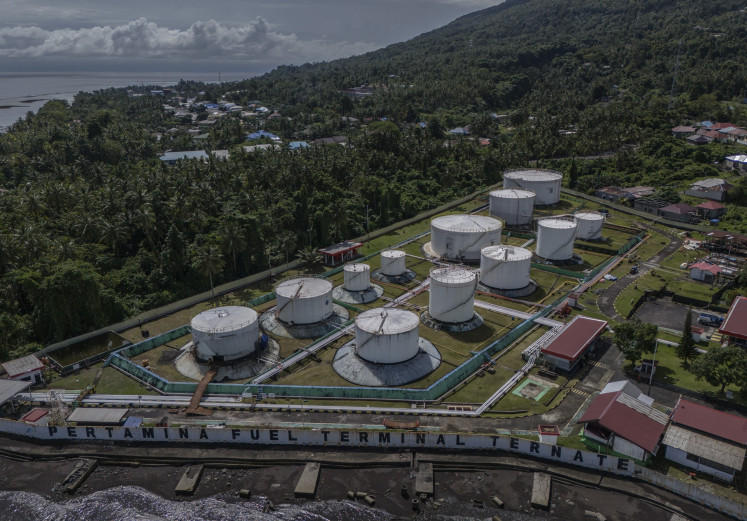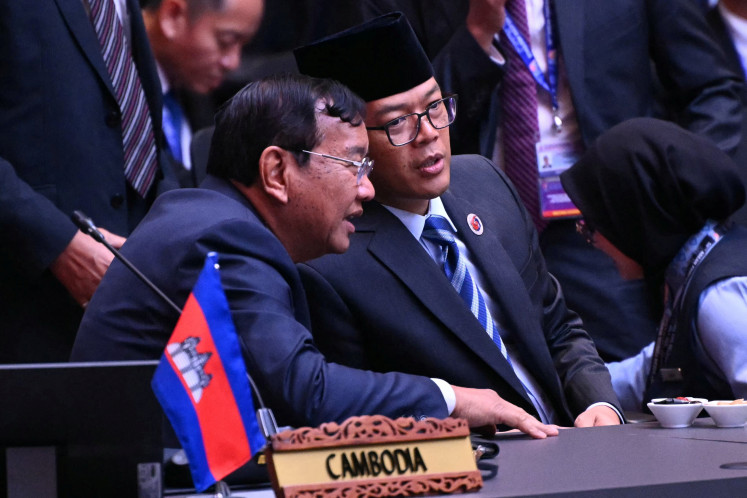Popular Reads
Top Results
Can't find what you're looking for?
View all search resultsPopular Reads
Top Results
Can't find what you're looking for?
View all search resultsMuhammadiyah rejects hard-liners, promotes moderate Islam
When critics began questioning Indonesia’s global reputation as a tolerant Muslim-majority democracy, all eyes were on the country’s two biggest Islamic organizations, Nahdlatul Ulama (NU) and Muhammadiyah, which together have been called the face of Indonesia’s moderate Islam
Change text size
Gift Premium Articles
to Anyone
W
hen critics began questioning Indonesia’s global reputation as a tolerant Muslim-majority democracy, all eyes were on the country’s two biggest Islamic organizations, Nahdlatul Ulama (NU) and Muhammadiyah, which together have been called the face of Indonesia’s moderate Islam.
Work to promote moderate Islam seemed to slowly collapse when increasingly strong and divisive sectarianism became evident during the Jakarta gubernatorial elections. Several large rallies supported by hard-line organizations hit Jakarta’s streets to demand the then incumbent candidate Basuki “Ahok” Tjahaja Purnama, a Christian of Chinese descent, be jailed for blasphemy.
Grassroots members of both NU and Muhammadiyah joined the rallies, but the appearance of prominent Muhammadiyah figures siding with the hard-liners prompted many to question the organization’s moderate stance.
On Monday, Muhammadiyah held a national event in Jakarta that was attended by the organization’s senior figures, as well as by Religious Affairs Minister Lukman Hakim Saifuddin. Muhammadiyah members were asked to follow a middle path and avoid being too extreme in their Islamic practices.
This event came in the wake of two recent attacks by suicide bombers in Kampung Melayu, East Jakarta, which left three policemen dead and were suspected to have been committed by supporters of the Islamic State (IS) movement.
Lukman, a prominent NU figure, said the Islamic teachings introduced by Muhammadiyah founder Ahmad Dahlan represented the type of Islam Indonesians should revive because of their tolerance and compatibility with the country’s national motto of Unity in Diversity.
“It is the type of Islam that does not easily blame one another or consider each other as kafir [infidels],” Lukman said. He added, “Our challenge today is the emergence of an Islam that denies the principles adopted in this diverse country.”
Lukman also said the characteristics of Islam brought by Ahmad Dahlan had a strong sense of nationalism.
“The love for Indonesia is apparent in the prominent figures of Muhammadiyah,” Lukman said. “Religion is the expression of being a good citizen.”
Muhammadiyah chairman Haedar Nashir acknowledged that the group had members who had been “too extreme” in their Islamic practices. He said these members were registered with the organization, but they did not follow the ummatan wasathan (moderate) principle, a standpoint for which the organization has largely been known.
He explained there were two types of extremism. Both of them posed challenges to the religious practices of the followers of Muhammadiyah, he said. The first was the “extreme right,” which is a religious practice that is too conservative. The second was the “extreme left,” total liberalism, which he said could also be problematic in Indonesia.
He said conservatism in Islam manifested itself in various movements, such as the movements that push for sharia to be enforced or for an Islamic caliphate to replace the existing system.
“For us, this country [with a democracy based of the principles of] Pancasila is Darul Ahdi Wa Syahadah [a form that has been agreed upon],” Haedar said. “Any member that has a different view about the state has no place in Muhammadiyah,” Haedar said.
On Sunday, Jakarta-based Saiful Mujani Research and Consulting (SMRC) released research results that showed that not even one in 10 Indonesians supported the implementation of a caliphate to replace the existing political system of democracy.
It is difficult to determine the exact number of NU and Muhammadiyah followers in the country, but the organizations often claim to have about 70 million and 40 million, respectively.










